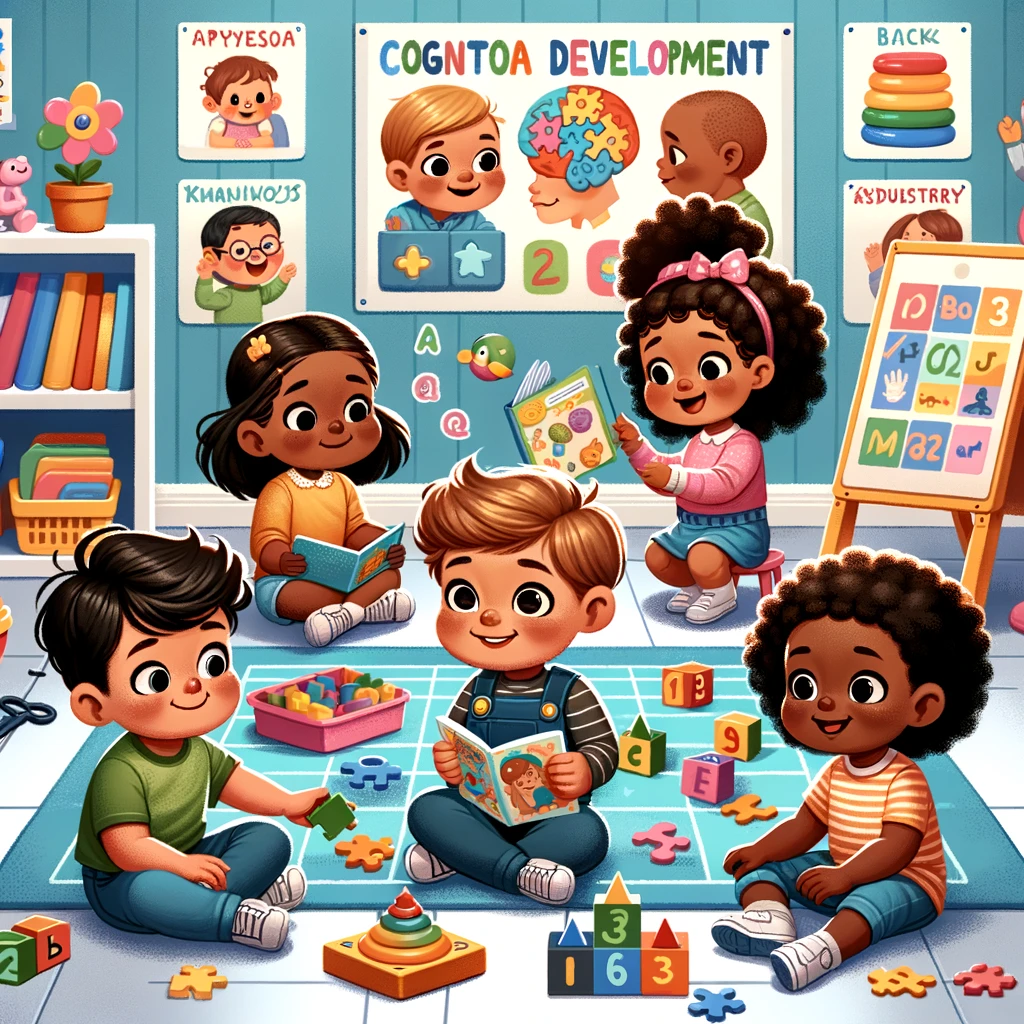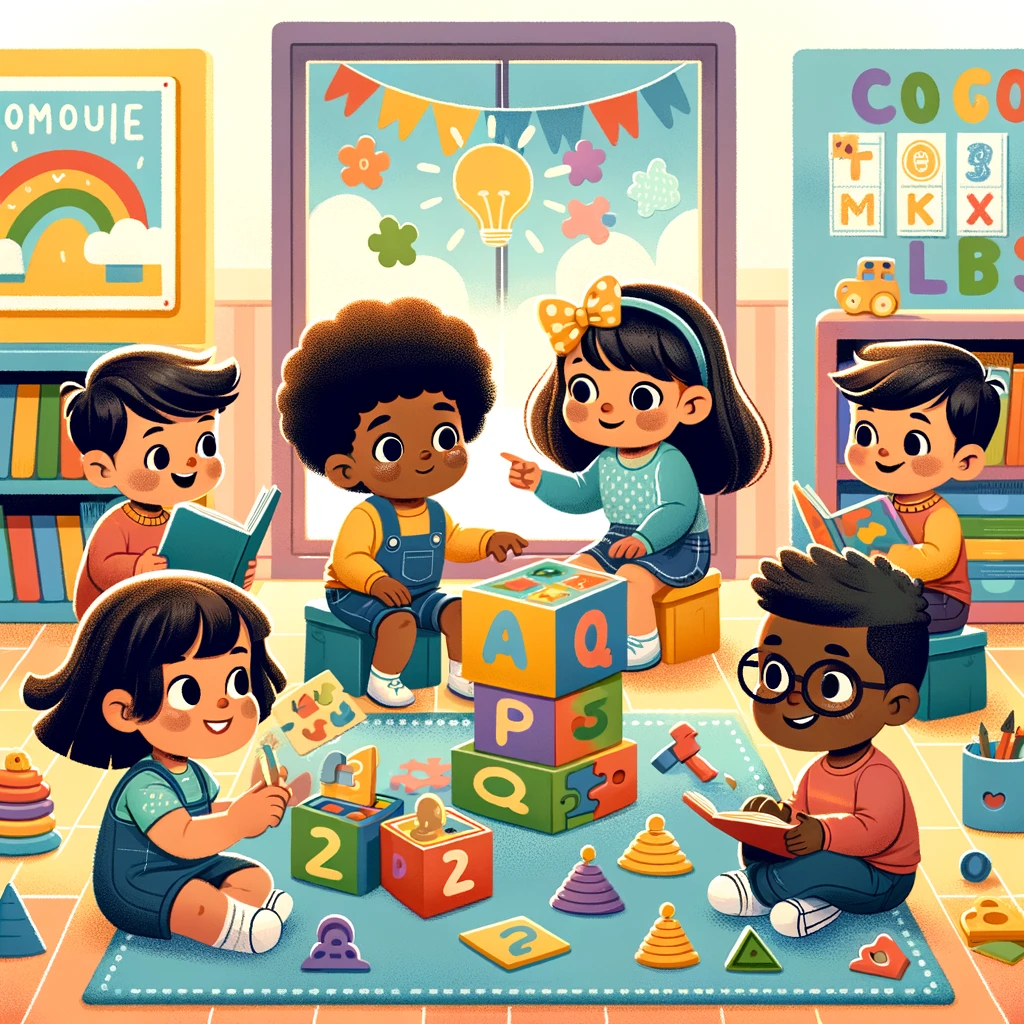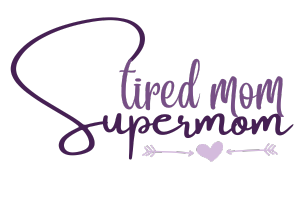6 Genius Strategies for Navigating Childhood Milestones
Raising a child is like being on a rollercoaster that alternates between exhilarating joy rides and the occasional nail-biting loop-the-loops of concern.
Understanding your child’s world through the lens of developmental milestones isn’t just educational—it’s a survival tactic for the wild adventure called parenting.
This post may contain affiliate links. Full privacy policy and disclosure here.
The Whirlwind of Early Childhood Milestones
Remember the first time your little one smiled at you? That wasn’t just gas—it was a developmental milestone! As you navigate through the baby and toddler years, you’ll encounter a host of these milestones, from the first garbled “mama” to the proud moment they put on their shoes all by themselves (even if they’re on the wrong feet).
Age-specific child behaviors are fascinating. At two, they’re asserting independence with a vehement ‘No!’, and at three, they’re asking questions that would stump Einstein. By understanding these stages, you can better appreciate the unique, sometimes hilarious ways in which your child views the world.
Cognitive Milestones and the Art of Toddler Negotiations
If you’ve ever tried to reason with a toddler, you know it’s like negotiating with a tiny, stubborn CEO. Cognitive milestones are all about brain development, which means your little one is starting to figure out how things work—including your buttons. It’s a time for learning, growth, and the occasional “creative” interpretation of the rules.

Developmental Benchmarks for Kids: The Checkpoints of Growth
Every child grows at their own pace, but developmental benchmarks are the checkpoints on this journey. They help you understand what skills are typical for various ages, like when your four-year-old suddenly becomes a social butterfly or your five-year-old begins to show signs of reading readiness.
Physical growth is one of the most visible changes. Those baby rolls? They’ll transform into the energy that fuels your child’s first steps and eventually, their soccer goals or dance recitals. It’s a phase of life where each inch grown feels like a mile of progress.
The Emotional Rollercoaster: Emotional Growth in Children
Emotional development can be a wild ride. One minute, your child is a cuddle monster, and the next, they’re a whirlwind of emotions over the blue cup being in the dishwasher. It’s a time to teach them about feelings and how to express them—even if that means hearing about why their teddy bear deserves a spot at the dinner table.
Language development is a game-changer. Early on, it’s all about coos and babbles, but before you know it, you’ll have a full-fledged conversationalist asking you why the sky is blue and how to spell “pterodactyl.”
Fine and Gross Motor Skills: The Clumsy Chronicles
Watching your child develop fine and gross motor skills is like watching a live comedy show. There’s the spaghetti-fingers phase, the I-can-hold-a-crayon phase, and the I-can-sort-of-catch-a-ball phase. Each new skill is a step towards independence and a potential for laughter (and a few facepalms).
Pediatric Developmental Markers: The ‘Normal’ Debate
When it comes to developmental markers, ‘normal’ is a broad spectrum. Your friend’s kid might be reciting Shakespeare at four, while yours is still mastering the art of not eating crayons. And that’s okay! These markers are guides, not rulebooks.
Social development is fascinating. Toddlers can go from solitary play to being the life of the playdate. It’s a time for learning to share, make friends, and navigate the complex world of playground politics.
It’s important to be aware of the signs of developmental delays. Not to stress you out, but to empower you. If you’re concerned, consult a professional—because sometimes, even superheroes need a sidekick.
Parenting Guide to Child Progress: Your Personal Manual
Think of each milestone as a chapter in your personal parenting guide. And remember, this guide often requires updates and revisions because, let’s be honest, children have a knack for making up their own rules.
Whether it’s counting to ten or writing their name, educational milestones are significant. These are the building blocks of lifelong learning, and you’re the first teacher they’ll ever have.
Keeping track of your child’s progress is key. Regular check-ins with your pediatrician ensure that your child’s growth chart is more than just a wall decoration. It’s a part of the developmental screening tools that help keep you informed.

Physical Development in Early Childhood: The Squat-and-Wobble Phase
The physical development in early childhood is all about mastering the art of movement. From the squat-and-wobble phase to the climb-everything-in-sight phase, it’s a time of constant motion—and constant vigilance for parents.
Use developmental screening tools to your advantage. They’re like having a GPS for the journey of child growth—sometimes you still get lost, but it definitely helps to have directions.
Wrapping Up: A Parent’s Journey Through Child Growth and Development
In the end, understanding your child’s developmental milestones is about more than just keeping tabs on their growth. It’s about celebrating the little moments, the big achievements, and even the messy mishaps. It’s about laughter, love, and the realization that the days are long, but the years are short.
As you continue this adventure, remember that every child is unique. Embrace the chaos, relish the milestones, and keep a sense of humor because one day, you’ll look back and miss even the craziest days.
Dive into “Parenting with Heart,” your go-to guide for nurturing deep connections with your children, packed with practical tips for every stage of their growth. It’s a lighthearted and insightful read that promises to enrich the parenting experience with joy and understanding.
References
- Early Childhood Development: Black et al. (2017) discuss the importance of early childhood development programs and the risks of not reaching developmental potential in low-income and middle-income countries. This research emphasizes the need for multisectoral coverage of quality programming that incorporates health, nutrition, and early learning (Black et al., 2017).
- Speech Perception and Language Acquisition: Gervain and Mehler (2010) review milestones in language development during the first year of life, highlighting the interactions between speech perception, phonological development, word learning, and the biological underpinnings of language acquisition (Gervain & Mehler, 2010).
- Reliability of Parental Recall of Developmental Milestones: Majnemer and Rosenblatt (1994) explore the accuracy of parents’ recollections of their children’s developmental milestones, highlighting the importance of reliable developmental history in pediatric evaluations (Majnemer & Rosenblatt, 1994).
- Norms for Developmental Milestones: Neligan and Prudham (1969) provide norms for the developmental milestones of sitting, walking, using single words, and using sentences, offering practical guidance for monitoring child development (Neligan & Prudham, 1969).
- Infant Developmental Milestones and Cognitive Function: Taanila et al. (2005) examine the association between infant developmental milestones and educational level, suggesting that earlier attainment of milestones is associated with better intellectual performance (Taanila et al., 2005).

